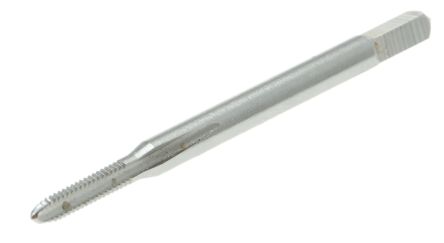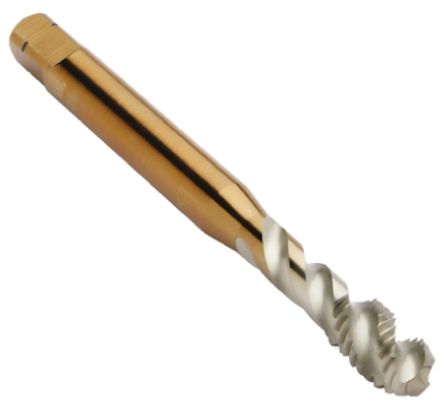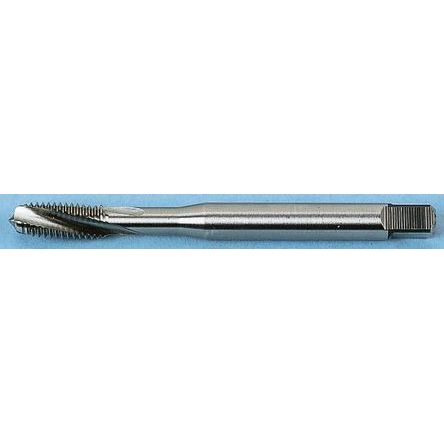- Automation & Control Gear
- Cables & Wires
- Enclosures & Server Racks
- Fuses & Circuit Breakers
- HVAC, Fans & Thermal Management
- Lighting
- Relays & Signal Conditioning
- Switches
- Batteries & Chargers
- Connectors
- Displays & Optoelectronics
- ESD Control, Cleanroom & PCB Prototyping
- Passive Components
- Power Supplies & Transformers
- Raspberry Pi, Arduino, ROCK, STEM Education & Development Tools
- Semiconductors
M2 Taps
Threading taps are a tool used to create screw threads (tapping) into a pre-drilled hole, to create a clean fitting for bolts in metals and plastics. Used in engineering and manufacturing, threading taps work like a drill but due to the unique shape of a tap, when screwed into a piece of material, screw threads are created. Threading taps must be used in a predrilled hole and cannot be used for drilling entire holes.
The difference between taps and dies is that taps are used to create or repair threads in holes which is ideal for nuts. Dies are used to cut threads on materials such as steel rods to allow a fitting to be screwed on and attached (threading). The tap is designed for internal thread cutting, so this would be used on the fastener hole or a nut, whereas a die is used for the external thread, like on a bolt. In other words, tapping uses the tap part of the set and creates internal threads and threading is the process used by the die to cut external threads.
Threading Taps are available in HSS (high-speed steel) and carbide and can be used by hand or machine. Our range of threading taps offers the best tool for every machining method or process to meet all your requirements. Threading taps can be used with a tap wrench or power tool and are available in various sizes to accommodate a range of applications.
Taps can be used by machinists in different ways for different applications:
- Taper taps or starter taps, are used to initially start a new thread with the first 7-10 threads having a flatter profile than those further up the shaft.
- Plug taps are similar to taper taps but only have 3-5 starting rows ground down leaving more shaft to create a thread.
- Bottom taps are square in profile with no ground down threads and are used after a taper or plug tap has been used. Their full length cutting shape allow for threads to be cut at the very bottom of a hole for maximum thread length.
- Spiral flute taps – for blind hole applications
- Spiral point taps – push chips forward, ideal for through-hole applications
- Straight flute taps – most commonly, designed for short chipping materials
- Forming taps – compresses to produce a thread rather than cutting
- Taps come in both Metric and Imperial dimensions and can have different shank types. Threading taps are used in conjunction with a tap wrench so always consider the maximum side tap your wrench can hold when purchasing.



